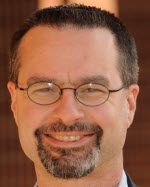Guest commentary: Survey finds hostile political rhetoric erodes trust in government

By Tom Ivacko/Center for Local, State and Urban Policy
Government of the people? For the people? By the people? Unfortunately, not many of the people appear to be for the government at this point. The percentage of Americans who trust the federal government to “do what is right” always or most of the time has fallen dramatically over the last five decades, from 73 percent in 1958, to just 26 percent today.
In Michigan, the percentages are even lower. Just 12 percent trust the federal government always or most of the time. While trust is somewhat higher toward the state government (16 percent) and local governments (35 percent), these are alarming levels, too.
While a certain core level of distrust toward government is in our political DNA - codified in our checks and balances - and is probably good, today’s awful levels raise questions about the health of our democracy. We vest our power and authority in fellow citizens to make decisions on our behalf, but if we have no trust in those policymakers, how long can the system function?
Now some good news arrives from a different perspective on political trust. The Michigan Public Policy Survey at the University of Michigan’s Gerald R. Ford School of Public Policy finds that Michigan’s local government leaders express relatively high levels of trust in their citizens.
Overall, 53 percent trust their citizens to be responsible participants in governance nearly always or most of the time. This is encouraging because other research shows that when local leaders trust their citizens, they are more likely to foster citizen engagement with the government.
In turn, the MPPS also finds that in communities where citizens are highly engaged with the government, leaders express even higher levels of trust in their citizens. So there may be a positive feedback loop, where engaged citizens make their leaders more trusting, thereby causing leaders to engage more citizens more deeply in the governments’ work. Now that’s of the people, for the people, by the people.
But other problems loom on the horizon. The MPPS also finds that local leaders express less trust in communities where they believe the civic discourse is divisive, instead of constructive. Trust suffers where people are hostile.
So what’s the lay of the land across Michigan today? Overall, 30 percent of local leaders say discourse is mostly constructive in their communities, while 11 percent say it is mostly divisive, and 50 percent say it is mixed. Meanwhile, 25 percent say discourse is more civil today than it was 10 years ago, while 13 percent say it is less civil. Not overwhelmingly good news, but things could be worse.
And they are worse, among the policy class in Washington D.C. and Lansing. And increasingly, too, in many of the online forums where much of today’s public “debate” plays out among mostly anonymous citizens. The political culture of our capital cities and of the new electronic public square has become corrosive: win at all costs, take no prisoners and demonize the opposition in the process.
The hostility has a real cost, draining the reservoir of trust.
Politics is tough business, and always has been. There will be winners, losers and fighting. But there can also be -- for our own good, needs to be -- a foundation of respect and mutual agreement that ultimately we’re in this together.
This is not a call for a Michigan group hug. But it is a call for all of us -- the politicians, the lobbyists and citizens alike -- to dial back the rhetoric. To be more responsible stewards of our democracy, so we leave it stronger than we found it. If we can’t even do that, we don’t much deserve it.
See what new members are saying about why they donated to Bridge Michigan:
- “In order for this information to be accurate and unbiased it must be underwritten by its readers, not by special interests.” - Larry S.
- “Not many other media sources report on the topics Bridge does.” - Susan B.
- “Your journalism is outstanding and rare these days.” - Mark S.
If you want to ensure the future of nonpartisan, nonprofit Michigan journalism, please become a member today. You, too, will be asked why you donated and maybe we'll feature your quote next time!
 Oakland County Executive Brooks Patterson uses a comb to make a comparison between House Speaker Jase Bolger and Adolph Hitler during a recent taping of WKAR’s “Off the Record” program. Tom Ivacko argues that a Michigan survey shows that hostile political rhetoric damages trust in government. (courtesy photo/WKAR)
Oakland County Executive Brooks Patterson uses a comb to make a comparison between House Speaker Jase Bolger and Adolph Hitler during a recent taping of WKAR’s “Off the Record” program. Tom Ivacko argues that a Michigan survey shows that hostile political rhetoric damages trust in government. (courtesy photo/WKAR) Tom Ivacko is an administrator and program manager at the Center for Local, State and Urban Policy at the University of Michigan.
Tom Ivacko is an administrator and program manager at the Center for Local, State and Urban Policy at the University of Michigan.